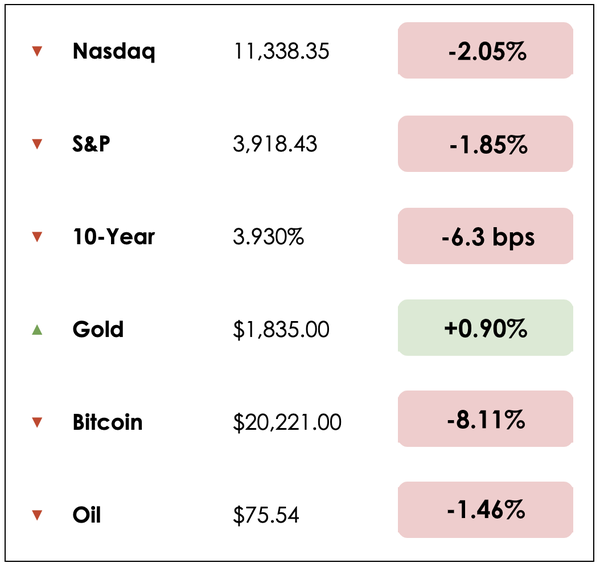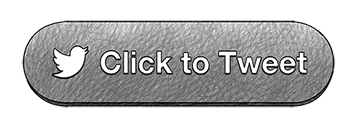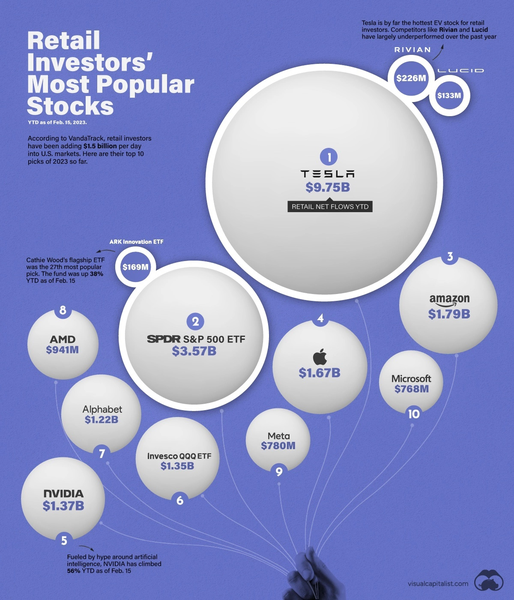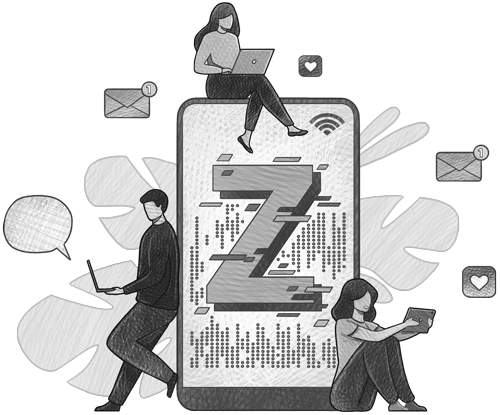Bank Collapse

Hi, The Investor’s Podcast Network Community!
It’s not every day that a U.S. bank collapses.
Silvergate Capital, a bank known for its relationships with crypto companies, announced yesterday it would wind down operations after the collapse of the digital asset exchange FTX spawned unprecedented withdrawals 💫
And SVB Financial Group, the owner of Silicon Valley Bank, saw its stock fall 45%. It was downgraded by Moody’s while also selling off a chunk of its securities portfolio at a $1.8 billion loss in response to deposit outflows.
😨 Bank investors were spooked, to say the least. As a result, America’s four largest banks lost $47 billion in market value.
Here’s the market rundown:
MARKETS
*All prices as of market close at 4pm EST
Today, we’ll discuss two items in the news:
- The phenomenon of “viral quitting”
- A breakthrough in battery tech
- Plus, our main story on how TikTok took over the world
All this, and more, in just 5 minutes to read.
Understand the financial markets
in just a few minutes.
Get the daily email that makes understanding the financial markets
easy and enjoyable, for free.
History of positive returns ✔️
Inflation-hedging potential ✔️
Resistance to market volatility ✔️
Land has helped investors preserve wealth for generations, and AcreTrader makes it easy to diversify with farm and timberland assets online — Find out how.
IN THE NEWS
💼 Viral Quitting (NYT)
Explained:
- On TikTok and YouTube, workers are sharing their stories of leaving their jobs, giving them a sense of power over often untenable situations.
- Young people are posting mini dramas that draw millions of viewers. In some cases, the public videos translate into new career opportunities, helping those who post them build their online personalities. One young woman recorded her decision moments before she quit. Then she made a TikTok video about it.
- We’ll have more about the power of TikTok below, but service workers in low-wage jobs are proclaiming, publicly, that the trade-off of working for money is no longer a fair deal for all.
Why it matters:
- With 1.9 job openings for every person looking for work, young Americans are betting they can afford the risk of going public. For many, the risk is worth it.
- Quitting videos or QuitToks, as they are sometimes called, reflect “a breakdown of the social contract that if you work hard and play by the rules, the American dream is still there for you,” said Ann Swidler, a sociology professor at the University of California at Berkeley whose courses include the sociology of culture.
- Said one Harvard professor: “By and large, people don’t quit jobs. They quit bosses.” As the labor market remains tight, it appears the trend will continue.
🚗 Making Batteries Last Longer (WSJ)
Explained:
- U.S. scientists say they have produced the first commercially accessible material that eliminates energy loss as electricity moves along a wire, a breakthrough that could mean longer-lasting batteries, more-efficient power grids and improved high-speed trains.
- Researchers at the University of Rochester report that they have created a new superconductor that can operate at room temperature and a much lower pressure than previously discovered superconducting materials.
- The breakthrough could “magnetically levitate trains above superconducting rails, change the way electricity is stored and transferred, and revolutionize medical imaging,” said Ranja Dias, one of the researchers.
Why it matters:
- Phones and laptops will need less electricity to run and not lose energy as heat, giving them longer battery life. The same components could be incorporated into electric-car batteries, potentially accelerating our transition to EVs.
- The so-called superconductors could also tackle issues such as climate change, as a superconducting grid can store solar or wind energy indefinitely and transfer it over large distances without a loss. This is key because about 5% of all electricity was lost during transmission and distribution in the U.S. between 2017 and 2021, per the U.S. Energy Information Administration.
- The breakthrough also could mean less energy use overall, reducing carbon emissions. The researchers further note that the superconductors could pave the way to cheaper, better machines that conduct nuclear fusion, a potential source of clean, virtually limitless energy.
Life-changing tech
TikTok changed Nathan Apodaca’s life. You may know him as the skateboarder riding along, drinking Ocean Spray Cran-Raspberry juice, and lip-singing the song Dreams by Fleetwood Mac.
One short video turned him into a national sensation, vaulting his life in a new direction, even sending the 40-year-old song Dreams back to the top of the music charts.
Apodaca says, “I didn’t plan any of it,” though. The video, supercharged by TikTok’s impressive recommendation engine, took a homeless Apodaca, and it enabled him to use his fame to start an acting career, recently being cast in the FX series Reservation Dogs.
Origin story
With over a billion users, an incredibly addictive algorithm, and a Chinese parent company, TikTok is defining a generation.
Its origins date back to 2014 with the app Musical.ly. Then, teens used it to record 15-second music videos of their favorite songs and edited them by speeding up the video, adding filters, or even setting it to play in reverse.
It was a fun way to manipulate popular music or comedy clips with a personal touch. For the Chinese tech company, ByteDance, this burgeoning app was an opportunity to break into the American market.
In 2017, ByteDance approached Musical.ly with an offer to buy it. Selling for $1 billion, it became TikTok, and ByteDance’s massive team of engineers set to work building the platform’s signature feature: The “For You” feed.
A potent algorithm
It’s the first thing you see when opening TikTok, and from the second you start watching, the algorithm quickly learns your interests and curates personalized short video content for you.
From home improvement to adorable dogs, stock investing, makeup, travel, and everything in between, most of us know how masterful it is at offering up things we may not even have previously realized we were interested in.
“The more data it gets, the smarter it gets,” says James Veraldi, former head of product strategy at Musical.ly. He adds, “It makes it effortless to get to the content that you find the most interesting.”
Christen Nino De Guzman, a former TikTok employee, sees the app as an equalizing force in the entertainment world: “It didn’t matter the type of house you had, your income, your background. Anyone, if they were entertaining and putting out content…they could find an audience.”
Political focus
By 2020, TikTok was a household name, becoming an intimate part of millions of people’s daily lives while stuck at home during the pandemic. That’s when politicians started to take notice, too.
Pranking President Trump at a campaign rally in Tulsa, a group of TikTok users went viral, encouraging people to reserve tickets for the event without actually attending. And it worked. On paper, the rally was expected to be huge, but in reality a small fraction showed up.
Whether that event turned Trump against TikTok is hard to say. Still, the President was soon making promises to ban the app that now held vast amounts of personal data for 110 million Americans, potentially at the whims of the Chinese Communist Party.
Republican Senator Josh Hawley called it “a major security risk.” Shortly thereafter, President Trump issued an Executive Order marking a deadline for TikTok’s U.S. operations to be sold to an American company.
President Joe Biden’s election put this plan on hold. TikTok later said it’s “confident that we’re on a path to reaching an agreement with the U.S. government that’ll satisfy all reasonable national security concerns.”
Critics abound
One of Washington’s leading voices for banning TikTok, Brenden Carr of the Federal Communication Commissions, argues that it’s not just a “fun video-sharing app.” Rather, that’s the “sheep’s clothing, and beneath the surface, TikTok functions as a very sophisticated surveillance tool…pulling everything from location information, to search and browsing history.”
Carr claims he’s spoken directly with TikTok executives who had little to say in response to his questions about how the company can prevent personnel in China from passing data to the Chinese government. He says, “They didn’t really have an answer to that.”
He pushed further, asking whether they know if any of their employees based in China are themselves part of the Communist Party, to which TikTok said, “(we) aren’t keeping track.” Carr remarked that his trust in the company is “zero.”
National security aside, others worry that the app is shortening our attention spans. Spending hours a day watching dopamine-packed 30-second videos can make real life feel boring.
A recent Pew survey found that almost a fifth of all teens say they’re on TikTok nearly constantly. And given its meteoric rise, TikTok has likely hit a scale such that it’s not going away, at least not without a Federal ban.
Final thoughts
TikTok is not all bad; many have used it to learn about new things. For some, TikTok is a dynamic alternative to google search, allowing users to find popular recommendations for restaurants in cities while traveling, life hacks, personal finance tips, and DIY skills.
What’s TikTok’s future? Our guess is as good as yours, but the cat is out of the bag. TikTok has shown the power of building a robust “For You” algorithm, and everyone from YouTube to Facebook and Instagram is playing catch up.
Listen to The Journal’s podcast on TikTok for the full story.
SEE YOU NEXT TIME!
That’s it for today on We Study Markets!
Enjoy reading this newsletter? Forward it to a friend.













